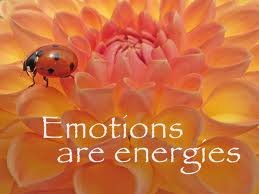 Locusts started invading Madagascar in November 2011. Due to
political unrest no solution could be reached internationally to their cries for aid. In
February 2013, Cyclone Haruna struck, creating optimal conditions
for locust breeding.
Locusts started invading Madagascar in November 2011. Due to
political unrest no solution could be reached internationally to their cries for aid. In
February 2013, Cyclone Haruna struck, creating optimal conditions
for locust breeding.
By late March 2013, approximately 50% of the country was
infested by swarms of locusts, with each swarm consisting of more than one
billion insects. The authorities changed the situation to plague status. According
to one eyewitness, “You don't see anything except locusts. You turn around,
there are locusts everywhere" – Wikipedia
"The UN estimates that about two-thirds of the island
country will be affected by the locust plague by September 2013 if no action is
taken."- BBC. There are talks of famine as the swarms decimate the rice yield.
Eating locusts: the crunchy, kosher snack taking Israel by swarm - Hebblethwaite
In Israel, locust swarms are periodic and although you
cannot eat yourself out of a plague, locusts are kosher and are eaten as a
delicacy. For the uninitiated, they are served crunchy - an effect that is best
achieved as follows:
Drop them into a boiling broth, clean them off, and roll in
a mixture of flour, coriander seeds, garlic and chilli powder. Then deep-fry
them.
Pan-frying is another good option, and they are
"crunchy, tasty and sweet” mixed with caramel and sprinkled into
meringue.
Locusts are high in protein, and also zinc and iron -
minerals which many people around the world are lacking - and they emit very
little in the way of greenhouse gases.
Locusts are a valuable source of income for women in Niger, who get up early to collect them from the millet fields, and then sell them at the market. They make more money from the locusts on the millet than the millet itself.
Locusts are a valuable source of income for women in Niger, who get up early to collect them from the millet fields, and then sell them at the market. They make more money from the locusts on the millet than the millet itself.
Arnold van Huis, Professor of Tropical Entomology at
Wageningen University in the Netherlands is one of the world's leading
advocates for eating insects.
Could it be that what has become a Crisis situation in
Madagascar may, with education, have a silver lining? Could the scourge of famine actually have been provision?
LOCUST
SWARM AS A REFLECTION OF A PERSONAL LIFE CRISIS
I believe there are lessons within these news articles for all of us:
1.
“You
don't see anything except locusts. You turn around, there are locusts
everywhere" – Our own trauma can blind us to all else. Initially, this is perfectly normal; there
seems no escape, no solution!
2.
“2/3 of
the country will be infected if no action is taken” – Our
crisis may become progressive, overwhelming us. We need help from outside of ourselves, we cannot
find solutions to every crisis alone.
3.
Talks
of famine – Negative thinking blocks our minds, negative talk demotivates us. We may become fearful and even experience a sense of hopelessnessv.
4.
Locusts
are high in protein, and also zinc and iron; Locusts are a valuable source of
income for women in Niger - There are so often solutions found in the
wisdom of counsel, direction and in the provision of God. God can turn our mourning into dancing.
5. Locusts turn out to be provision and a means of delicious food! - Trials can definitely turn into blessings with the right ingredients!
Could it be that in the midst of our “swarm”or even our "plague", there are treasures to be found? The very “locust” which causes such
destruction, such havoc; could it also be the means to our salvation?
Could this be?
A place where growth occurs
A place for creativity
A place where values
are explored
Something to think about...














